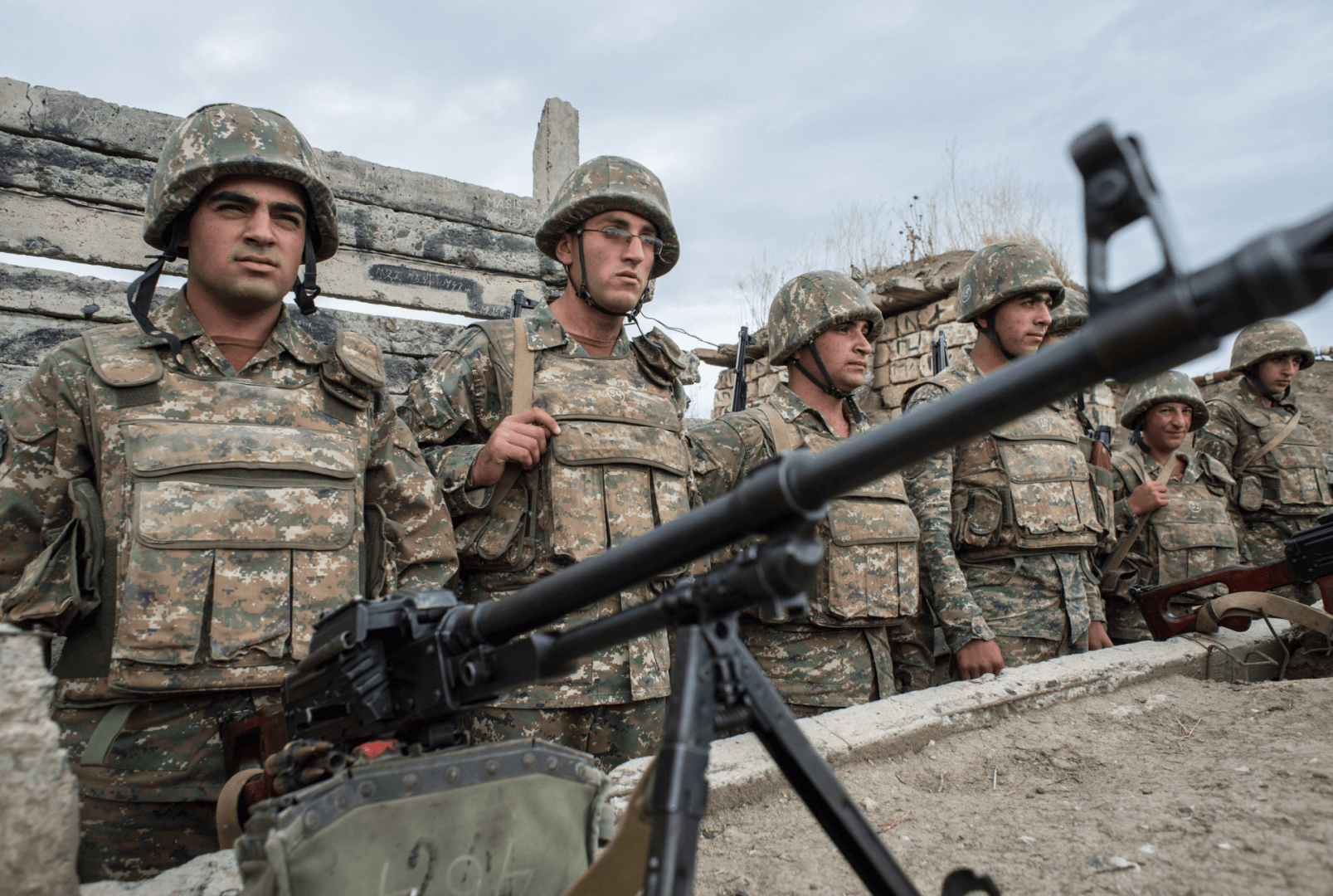NAGORNO KARABAKH CONFLICT

Following the partition of the Ottoman Empire in the wake of the First World War, the First Armenian Republic was founded - incorporating present day Eastern Anatolia, Nakhichevan and Nagorno-Karabakh. While the Ottoman Empire and European powers were initially signatories to the Sèvres Treaty of partition, the mobilisation of Turkish nationalism by Kemal Ataturk disrupted the negotiation process and prevented the ratification of treaty, engulfing the region in conflict.
Capitalising on this instability, the armies of the Bolsheviks and the Turkish Republic dismantled the Armenian Republic in their own efforts at territorial expansion. In an attempt to placate Turkey, and ensure the subordination of the fiercely patriotic Armenian people, Stalin separated Nagorno-Karabakh from Armenia and placed it under the administration of the newly formed Azerbaijani Soviet Socialist Republic.
Under the administration of the Soviet Union, labour redistribution and a strategy of ‘divide and conquer’ produced great disruptions in the ethnic composition of the South Caucasian states. When the implementation of perestroika and glasnost signalled the opportunity for the Soviet Union’s constituent oblasts to secede from the USSR, the Armenian, Nagorno-Karabakh and Azeri Soviet Republics took measures to mobilise nationalism to achieve independence - however, the entanglement of the region’s populations complicated these efforts and produced irregular interethnic conflict.
Following Azerbaijan’s unilateral decision to secede from the USSR in 1991, the Nagorno-Karabakh Republic declared its own independence on the 2nd of September instigating violent retaliation by Azeri authorities which devolved into full scale war. After an overwhelming Armenian strategic and military victory in 1994, a ceasefire was brokered by the Minsk Group; an organisation operating under the auspices of the OSCE consisting of permanent members Armenia, Azerbaijan, France, Russia and the United States. Crucially, the legitimate authorities of the Nagorno-Karabakh Republic were not included in the ongoing negotiations, denying the political agency of the Armenian people of Artsakh.
Since the ceasefire there has been intermittent border conflict, with the Azeri side consistently undermining the Minsk Group’s calls for deescalation. Between the 1st and 5th of April 2016, Azerbaijan - in the face of escalating domestic social and economic crisis - attempted blitzkrieg against the Nagorno-Karabakh Republic, capturing a number of villages on the frontline. Although the Karabakh defence forces were successful in countering the Azeri offensive and liberating captured territories, the 4-day-war was the largest instance of conflict since the 1994 ceasefire and a firm reminder of the inadequacy of the status-quo in ensuring the security of the people of Artsakh.
